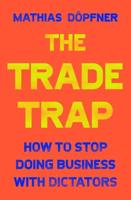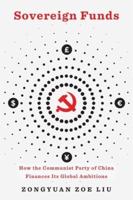Publisher's Synopsis
Studies in International Institutional Dynamics, 2 (International Studies Library, 18) This volume presents an authoritative and cutting-edge account of the evolving multilateral trading system and the challenges that it faces today. It focuses on details affecting the Doha negotiations and also addresses broader themes of leadership, changing balances of power, and institutional limitations of the WTO. Six country-cases of the established and rising powers, along with two chapters on the critical intervening variable of coalitions, offer new insights into problems and opportunities available in the multilateral trading system. The Introduction and Conclusion, co-authored by the two editors, ensure that the resulting volume will provide an accessible, holistic, and cohesive understanding of leadership and change in the multilateral trading system. Table of Contents Acknowledgements Author biographies 1. Introduction: Global trade governance in a multipolar world, Brendan Vickers and Amrita Narlikar Part I: The Established Powers 2. The EU in the Doha negotiations: A Conflicted leader?, Manfred Elsig 3. US trade Policy and the rise of the big emerging economies, Geoffrey Allen Pigman Part II: Rising powers in a multipolar trading system 4. Brazil's multilateral trade diplomacy in the WTO, Maria Lucia L. M. Padua Lima 5. Shifting coordinates of India's stance in the WTO: Understanding the domestic and international drivers, Amit Ray and Sabyasachi Saha 6. Reforming the WTO: China, the Doha round, and beyond, Gregory Chin 7. 'Reclaiming development in multilateral trade': South Africa and the politics of the Doha round, Brendan Vickers Part III: Bargaining coalitions in the Doha negotiations 8. A Theory of Bargaining Coalitions, Amrita Narlikar 9. Reflections on the WTO July 2008 collapse: Lessons for developing country coalitions, Faizel Ismail 10. Conclusion: What leadership and what change?, Amrita Narlikar and Brendan Vickers About the Author(s)/Editor(s) Amrita Narlikar is University Senior Lecturer in International Political Economy at the Department of Politics and International Studies, University of Cambridge, and Official Fellow of Darwin College. Her single-authored books include The World Trade Organization: A Very Short Introduction, Oxford: Oxford University Press, 2005 (translated into Chinese and Arabic), and International Trade and Developing Countries: Bargaining coalitions in the GATT and WTO, London: Routledge, 2003. Brendan Vickers, is Senior Researcher in Multilateral Trade at the Institute for Global Dialogue, Johannesburg, South Africa and Research Associate of the Department of Political Science at the University of Pretoria, South Africa. The post-war international architecture was designed and created by the hegemon - the United States. This book is an important addition to a growing literature on the multipolar world. There is still a hegemon, but with less and less power. The post-war partner Europe is more and more concerned with domestic issues. And there is a growing collection of coalitions. Thus, for example, there are the BRICs - Brazil, Russia, India and China - and the BICS - Brazil, India, China and South Africa - and lots of Gs. And BEEs or big emerging economies. Yet no coherent view of the trading system has emerged! There's a famous doggerel from the Bretton Woods negotiations: 'In Washington, Lord Halifax whispered to Lord Keynes, they've got all the money bags and we've got all the brains!' Today, as this excellent collection of studies illustrates, much of the money bags are in, say, China. And the brains are spread out all over the place. This is essential reading to begin to understand the emerging new world order. Or disorder? Sylvia Ostry, Distinguished Research Fellow, Munk Centre for International Studies









